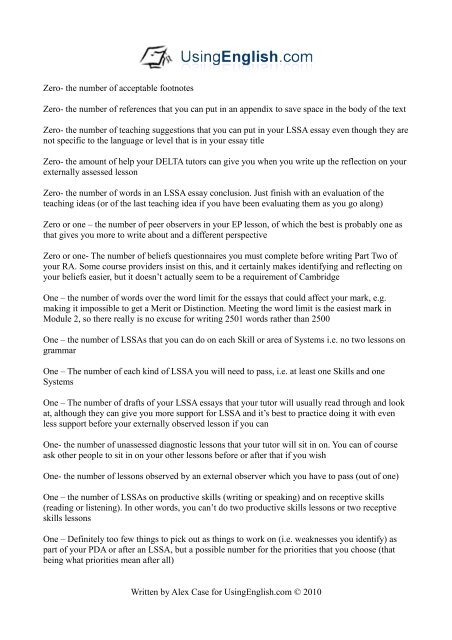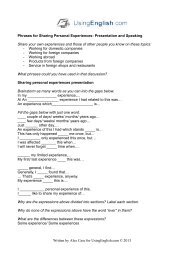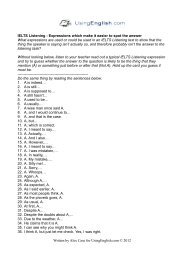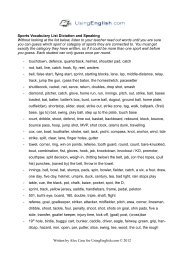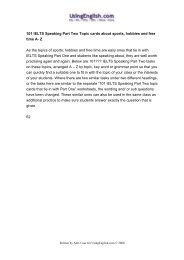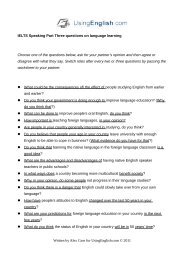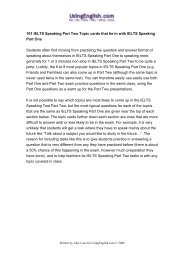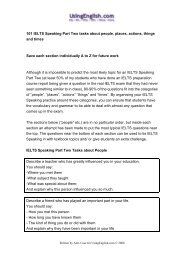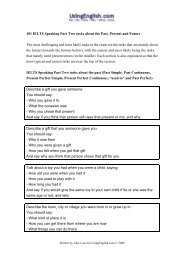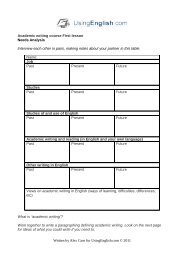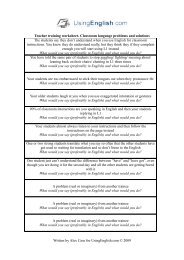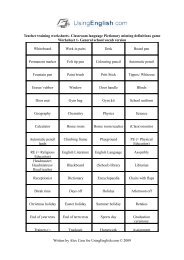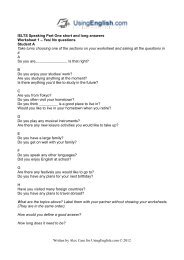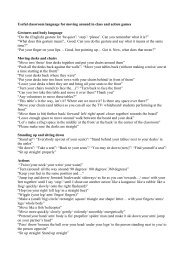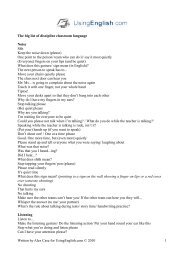You also want an ePaper? Increase the reach of your titles
YUMPU automatically turns print PDFs into web optimized ePapers that Google loves.
Zero- the number of acceptable footnotes<br />
Zero- the number of references that you can put in an appendix to save space in the body of the text<br />
Zero- the number of teaching suggestions that you can put in your LSSA essay even though they are<br />
not specific to the language or level that is in your essay title<br />
Zero- the amount of help your <strong>DELTA</strong> tutors can give you when you write up the reflection on your<br />
externally assessed lesson<br />
Zero- the number of words in an LSSA essay conclusion. Just finish with an evaluation of the<br />
teaching ideas (or of the last teaching idea if you have been evaluating them as you go along)<br />
Zero or one – the number of peer observers in your EP lesson, of which the best is probably one as<br />
that gives you more to write about and a different perspective<br />
Zero or one- The number of beliefs questionnaires you must complete before writing Part Two of<br />
your RA. Some course providers insist on this, and it certainly makes identifying and reflecting on<br />
your beliefs easier, but it doesn’t actually seem to be a requirement of <strong>Cambridge</strong><br />
One – the number of words over the word limit for the essays that could affect your mark, e.g.<br />
making it impossible to get a Merit or Distinction. Meeting the word limit is the easiest mark in<br />
<strong>Module</strong> 2, so there really is no excuse for writing 2501 words rather than 2500<br />
One – the number of LSSAs that you can do on each Skill or area of Systems i.e. no two lessons on<br />
grammar<br />
One – The number of each kind of LSSA you will need to pass, i.e. at least one Skills and one<br />
Systems<br />
One – The number of drafts of your LSSA essays that your tutor will usually read through and look<br />
at, although they can give you more support for LSSA and it’s best to practice doing it with even<br />
less support before your externally observed lesson if you can<br />
One- the number of unassessed diagnostic lessons that your tutor will sit in on. You can of course<br />
ask other people to sit in on your other lessons before or after that if you wish<br />
One- the number of lessons observed <strong>by</strong> an external observer which you have to pass (out of one)<br />
One – the number of LSSAs on productive skills (writing or speaking) and on receptive skills<br />
(reading or listening). In other words, you can’t do two productive skills lessons or two receptive<br />
skills lessons<br />
One – Definitely too few things to pick out as things to work on (i.e. weaknesses you identify) as<br />
part of your PDA or after an LSSA, but a possible number for the priorities that you choose (that<br />
being what priorities mean after all)<br />
Written <strong>by</strong> Alex Case for UsingEnglish.com © 2010


